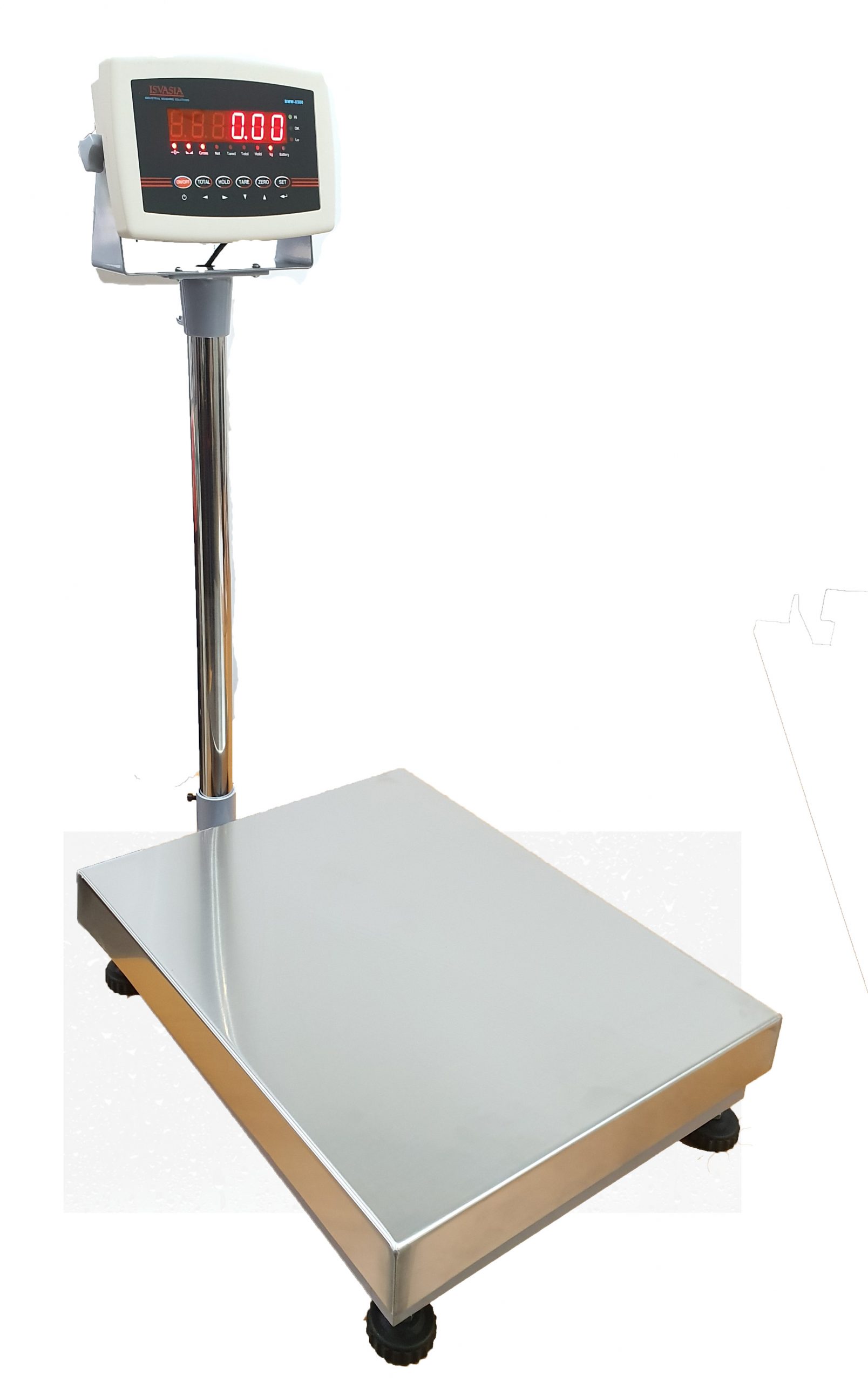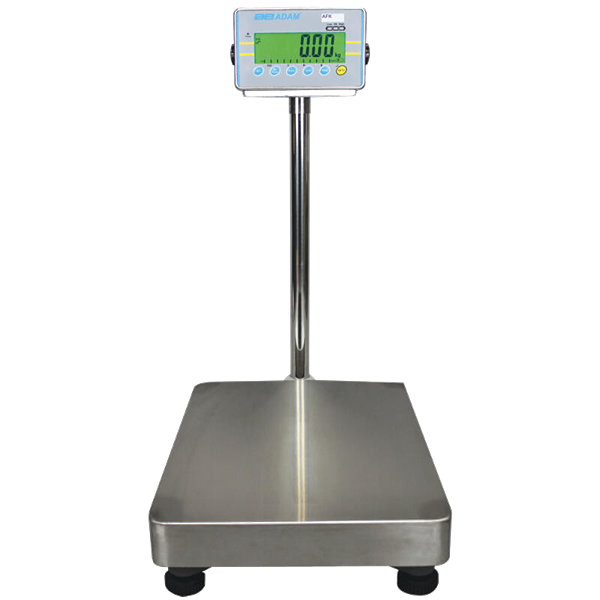The Essential Guide to Choosing the Right Industrial Scales for Your Needs
The Essential Guide to Choosing the Right Industrial Scales for Your Needs
Blog Article
Exactly How Industrial Scales Work: An Extensive Overview for New Users
Recognizing the technicians behind industrial scales is critical for brand-new individuals who want to make certain accuracy in their measurements. As we discover these elements, one must take into consideration exactly how these components engage to improve performance in varied commercial applications.
Basics of Industrial Scales
Industrial ranges are vital tools used across different fields, consisting of manufacturing, logistics, and farming, to guarantee accurate weight measurements of hefty tons. The basic principle behind commercial scales entails the conversion of weight into a quantifiable form that can be presented digitally or analogically. These ranges employ different devices, such as tons cells or mechanical levers, to determine the weight of items positioned upon them.

In addition to their measurement capabilities, industrial ranges are developed to stand up to extreme atmospheres, featuring robust building and construction that stands up to dirt, wetness, and heavy impacts. Calibration and upkeep are essential to make sure precision, as also small disparities can lead to significant monetary effects. By comprehending the basics of industrial ranges, customers can appreciate their importance in numerous commercial applications.
Types of Industrial Scales
Various kinds of commercial ranges cater to the varied requirements of different sectors, each created to deal with specific considering tasks with precision and dependability. Amongst the most usual types are flooring scales, which are perfect for considering hefty and bulky things. These scales usually feature big platforms and can fit palletized goods, making them crucial in storehouses and delivery facilities.
Another kind is bench scales, which are usually used for smaller sized things in manufacturing and retail settings. They supply accurate measurements for items that call for precision, such as chemicals or parts in production line (Industrial Scales). For mobile operations, portable scales supply flexibility and ease of transport, ideal for fieldwork or temporary installations
Additionally, specialized scales like checkweighers are utilized in production lines to keep top quality control by making certain that products meet weight requirements. Each kind of commercial scale plays a vital function in improving operational efficiency and precision throughout different sectors.
Exactly How Evaluating Mechanisms Work
Considering systems are necessary elements that enable exact dimension of mass across different commercial scales. These systems utilize various concepts of physics and engineering to provide specific weight analyses, important for inventory monitoring, high quality control, and compliance with governing criteria.
One usual kind of weighing device is the tons cell, which operates the concept of strain determines. When a tons is applied, the tons cell deforms a little, generating an electrical signal proportional to the weight. This signal is then exchanged a legible weight measurement by the range's electronic devices.
Another extensively utilized system is the mechanical equilibrium, which employs a system of bars and weights. Industrial Scales. This approach counts on the concept of equilibrium, where the weight of the item being measured is balanced versus known weights, permitting direct dimension
In addition, pneumatically-driven and hydraulic scales take advantage of fluid dynamics concepts to determine weight. These systems use the stress applied by a tons to determine weight, using high precision for enormous lots.
Proper Usage Methods
When utilizing industrial ranges, sticking to proper usage strategies is essential for ensuring accurate dimensions and keeping devices honesty. It is crucial to pick the suitable scale for your certain application, as ranges differ in capability and accuracy.
Prior to considering, make certain that the range is positioned on a stable, level surface area free from vibrations or disturbances. This will certainly help to minimize mistakes created by exterior factors. In addition, adjust the range according to the producer's specs prior to use, ensuring that it is functioning correctly.
When positioning things on the range, distribute the weight evenly to avoid tipping or harming the tools. Always allow the range to support before tape-recording the weight, as fluctuations may take place throughout preliminary placement. For bulk products, utilize containers that are proper for the range dimension to avoid overloading.
Additionally, prevent placing cold or extremely hot items straight on the scale, as temperature level recommended you read variants can impact precision. Last but not least, keep the evaluating system cost-free and clean of particles to stop contamination and make certain reliable outcomes. By following these strategies, individuals can optimize the performance and long life of their industrial ranges.
Upkeep and Calibration Tips
Making sure the long life and accuracy of commercial scales needs diligent maintenance and normal calibration. A preventive upkeep timetable is important; it needs to include regular inspections to determine damage, particularly on tons cells and various other sensitive components. On a regular basis cleaning the scale's surface area and making certain the surrounding area is cost-free from debris will assist keep its honesty and performance.
Calibration is similarly important and must be performed at regular intervals or whenever the range experiences substantial adjustments in temperature, humidity, or physical displacement. Use licensed calibration weights that are deducible to nationwide criteria for accuracy. Paper each calibration session diligently to track efficiency over time and identify any type of patterns or persisting problems.
In addition, be mindful of the range's environment. Avoid placing it near resources of vibration, electro-magnetic disturbance, or extreme temperature levels, as these variables can detrimentally affect measurements. Train all drivers on correct scale use and upkeep procedures to make sure constant performance and accuracy. By adhering to these upkeep and calibration pointers, customers can improve the dependability of their industrial scales, guaranteeing optimal operation in any kind of setting.
Verdict

Understanding the mechanics behind commercial ranges is crucial for new users that desire to make certain precision in their dimensions.Industrial ranges are additional reading necessary devices used across different industries, including manufacturing, logistics, and agriculture, to ensure accurate weight dimensions of heavy loads. The fundamental principle behind industrial go scales includes the conversion of weight right into a measurable form that can be displayed digitally or analogically. By recognizing the essentials of commercial scales, users can value their value in different industrial applications.
In conclusion, recognizing the procedure and maintenance of commercial ranges is important for making sure precise weight measurements in numerous applications. (Industrial Scales)
Report this page